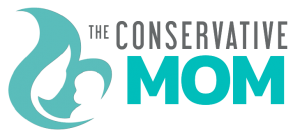A recent Gallup survey reveals a growing preference among Americans for larger families, marking the highest desire for large families since 1971. This shift in preference challenges a decades-long trend favoring smaller families of one or two children.
According to the survey, 45% of respondents now favor larger families, with 29% considering three children ideal, 12% preferring four children, and 2% each favoring five, six, or more. This stands in contrast to the 47% who believe that two or fewer children is ideal, with 44% preferring two children and 3% preferring just one child. Only 2% believe that an ideal family should not include any children.
Gallup points to social trends from past decades that may have contributed to the decline in having children, including concerns about global overpopulation fueled by publications like “The Population Bomb” in 1968. This concern led to a drop in the preference for larger families from 70% in 1967 to 52% in 1972.
The president of the American Principles Project, Terry Schilling, suggests that this shift toward favoring larger families may signify a return to fundamental family values and a rejection of the anti-family sentiments of the 1960s. He notes that over 90% of respondents expressed a desire for children at any quantity.
Schilling also highlights that the 8% of Americans who do not wish to have children still hold a significant presence in culture, including entertainment, politics, news media, academia, and corporations.
Demographic trends revealed in the survey show that young people aged 18-29 are more likely to prefer larger family sizes, along with black and Hispanic individuals. Republicans, conservative independents, and lower-income residents also tend to prefer larger families. In contrast, Democrats, non-religious individuals, and wealthier residents are more likely to prefer smaller families with one or two children.
Despite these preferences, birth rates have been declining, and adults are starting families later in life, often leading to smaller family sizes. Factors such as economic challenges and concerns about the state of the world have contributed to these trends.
However, Schilling emphasizes that the enduring desire for children and family among Americans is a testament to the intrinsic value of the family unit, even in the face of societal hurdles and challenges.

